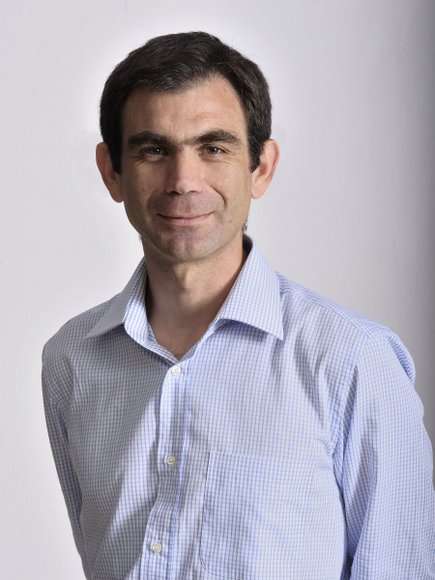
~
By Jim Boyce
Shandong, Ningxia, Xinjiang, Hebei, Yunnan. A short list of spots where people are pinning their hopes for the future of China’s wine industry. For his part, Mihalis Boutaris — a fifth-generation wine maker who has practiced his craft in France, Chile and at his family’s Kir-Yianni Estates in Greece — says he has found a sweet spot in Gansu province in north-central China. Boutaris, who graduated from University of California at Davis with a Master of Science in Horticulture, talked about that and other projects.
You have been making wine in Gansu for a few years now. What projects are you working on?
I have two projects.
The first is the establishment of my vineyard in Tianshui. We have reached 200 mu (~13 hectares) and we’re planning to establish a vine nursery next year to control the plant material for the future expansion.
Second, to develop a new wine produced in an estate inside the Gobi desert near the border of Ningxia and Gansu, near Jinchang. We’re also working together on an exciting solar energy project there, which happens to be another field where I happen to have some expertise.
How does the area of Gansu you are working in now differ from elsewhere in the region or in China?
In Tianshui, there is less rain in the summer than most areas east of Tianshui and it’s less cold than most areas north of Tianshui. This “sweet spot” makes Tianshui a quite promising place to grow premium wine grapes in China.
In Jinchang, inside the Gobi Farm, the weather conditions are pretty much similar to the wine region in Ningxia. The key difference is that the vineyards are controlled by the winery much more than in any other place. It’s a small oasis with nothing but desert around it for dozens or hundreds of kilometers in all directions. Although the place is not what I would call ideal, it is optimal for China in many ways. Not only is August and September rain much rarer than even in Ningxia, which experienced such rain last year, but also there is a better chance of guiding and controlling local farmers to adopt more quality-oriented viticultural practices.
What lessons have you learned from making wine elsewhere that were particularly useful in Gansu?
When you don’t have all the standard equipment and processes in place, you have to figure out practical tricks to apply to the theory. I have a number of interesting stories that I wouldn’t want to publicize yet.
Neighboring Ningxia saw some heavy rain and, in turn, disease this year. How did your area of Gansu make out?
In Tianshui, there was more rain than in Ningxia as expected. The micro climate at our site, with the constant breeze, mitigated the adverse weather. For us it is a bit irrelevant given that we do not yet have grape production — it’s a two-year-old plantation.
In Jinchang, there was no rain at all before harvest. And that made me quite happy I must say. I chose Jinchang to hedge against the rainy years and Tianshui to grow the best grapes of China in the dry years.
You’ve tried many wines in China. What would you rank as the top five in terms of wines made with local grapes?
This is a tricky question. I remember liking some of the top-ranking wines during the Ningxia Wine Challenge: Silver Heights (both labels), Jia Bei Lan and Ningxia Hong.
I also like the new entry-level series with the new labels of Grace Vineyard. They have a much fresher, lighter, more youthful style. I prefer the lighter style than that of the higher end wines.
For the same reason I enjoy a lot of the Sunshine Valley Pinot Noir 2009 we produced with Mogao. That has a “Chinese terroir” expression of Pinot Noir. However, this is not a “ranking” in any way. I am not a wine critic, so this is purely my preference. Biased and personal.
You’ve also started distributing wines. Would you tell us a bit about MB Selections?
Mihalis Boutaris Selections is my recently established eclectic wine agency based in Shanghai and Hong Kong. We import and distribute Greek wines of all quality and price levels, both from my family as well as other winemakers, and focus primarily on supplying specialized distributors of imported wine.
(Get the free Grape Wall newsletter here. Follow on LinkedIn, Instagram, Facebook and Twitter. Grape Wall has no sponsors: help support the mission, including World Marselan Day via PayPal, WeChat or Alipay. Contact Grape Wall at grapewallofchina (at) gmail.com.)

Leave a Reply
You must be logged in to post a comment.